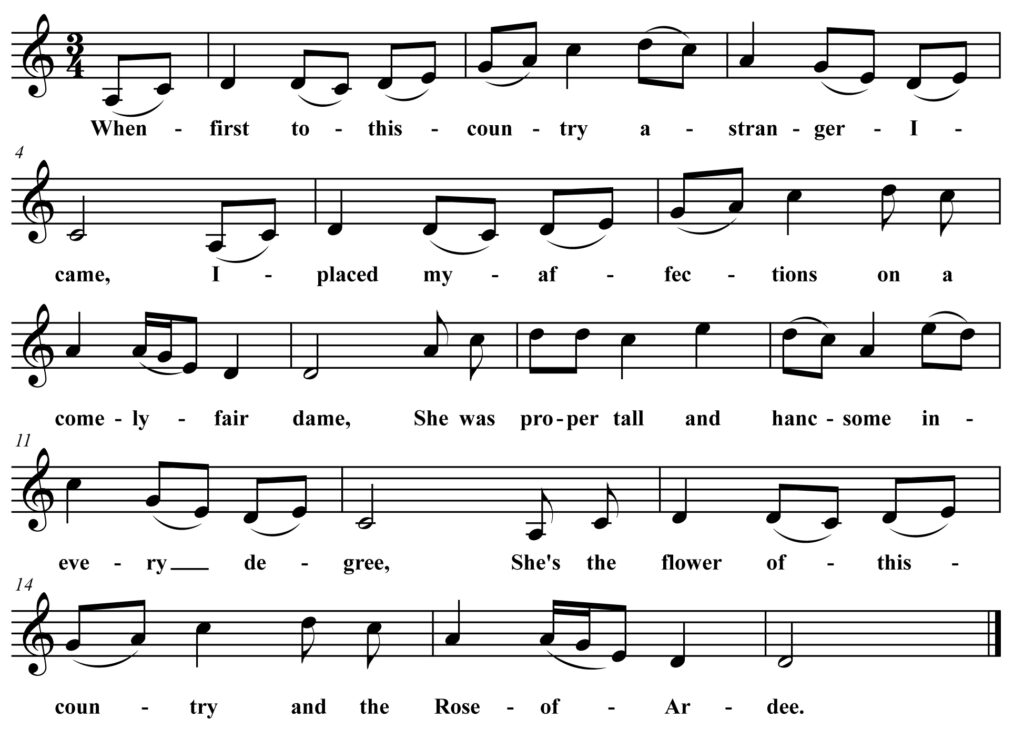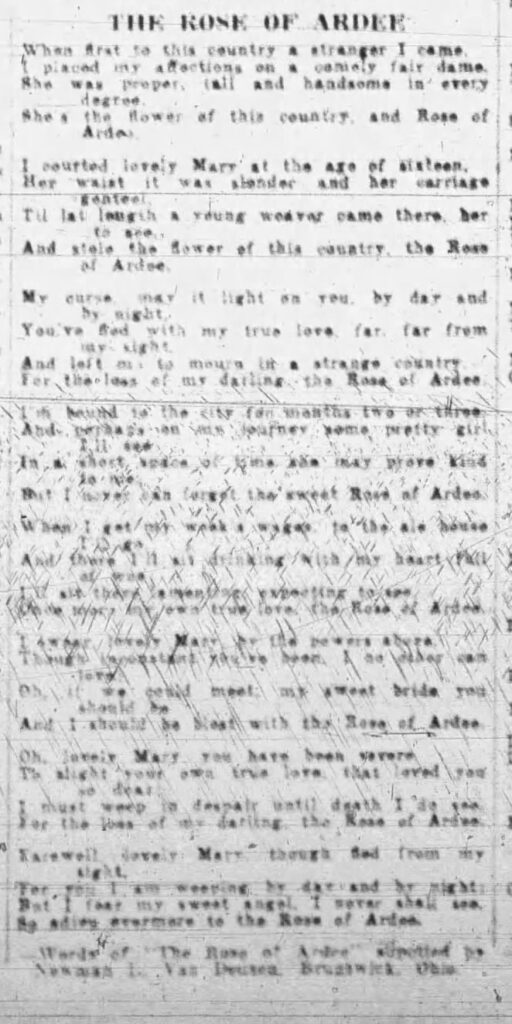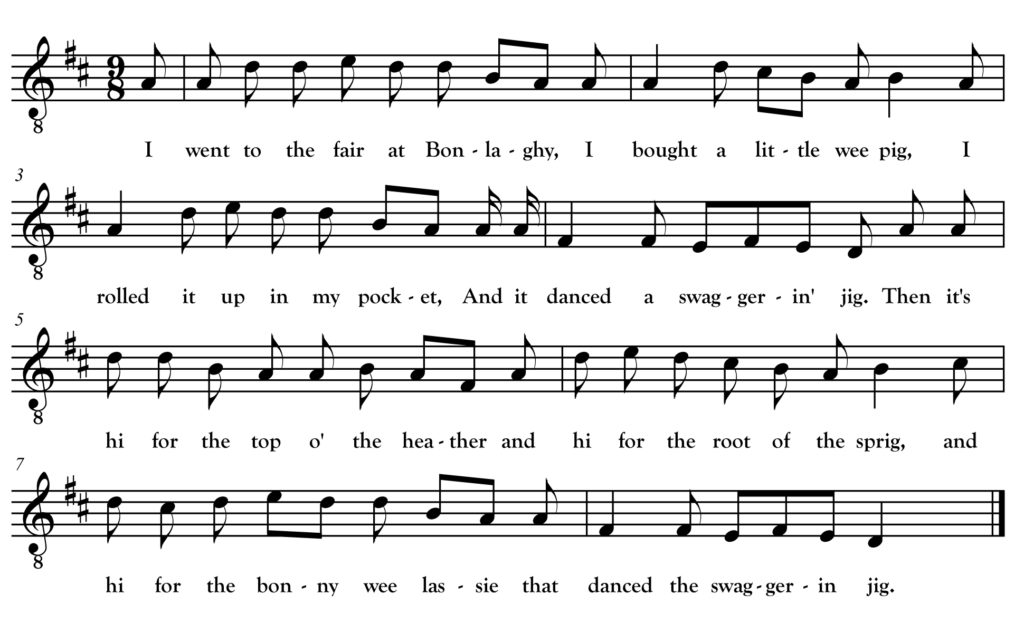The Rose of Ardee

When first to this country a stranger I came,
I placed my affections on a comely fair dame,
She was proper, tall and handsome in every degree,
She’s the flower of this country and the Rose of Ardee.
I courted lovely Mary at the age of sixteen,
Her waist it was slender, her carriage genteel,
’Til at length a young weaver came there, her to see,
And stole the flower of the country, the Rose of Ardee.
My curse may it light on you, by day and by night,
You’ve fled with my true love, far, far from my sight,
And left me to mourn in a strange country,
For the loss of my darling the Rose of Ardee.
I’m bound to the city for months two or three,
And perhaps on my journey some pretty girl I’ll see,
In a short space of time she may prove kind to me,
But I never can forget the sweet Rose of Ardee.
When I get my week’s wages to the ale house I’ll go,
And there I’ll sit drinking with my heart full of woe,
I’ll sit there lamenting, expecting to see,
Once more my own true love, the Rose of Ardee.
I swear, lovely Mary, by the powers above,
Though inconstant you’ve been, I no other can love,
Oh if we could meet my sweet bride you should be,
And I should be blest with the Rose of Ardee.
Oh, lovely Mary you have been severe,
To slight your own true love that loved you so dear,
I must weep in despair until death I do see,
For the loss of my darling the Rose of Ardee.
Farewell lovely Mary though fled from my sight,
For you I am weeping by day and by night,
But I fear my sweet angel, I never shall see,
So adieu evermore to the Rose of Ardee.
The “Old Songs Exchange” column that ran in the Minneapolis Journal from October 1923 to January 1925 drew many active readers/correspondents from outside Minnesota. Newman Van Deusen/Dusen of Brunswick, Ohio may have contributed the words to last month’s song “My Emmett’s No More.” On October 5, 1924, the column ran Van Dusen’s request for the words to “The Rose of Ardee.” Curiously, Newman Van Deusen of Brunswick, Ohio is credited with sending in the words to the song when they were published on November 9, 1924.
It could be that Van Deusen found the text in a songster. His lengthy version closely matches (though not exactly) that printed by Henry De Marsan in New York in the 1868 New Comic and Sentimental Singer’s Journal. A much shorter, fragmentary text for the song appears in a western New York family songbook (circa 1841-1856) published by Harold W. Thompson as A Pioneer Songster so it does seem plausible that the song made it in to tradition in the Lakes states.
“The Rose of Ardee” is sung in the north of Ireland and I have married the Minneapolis Journal text to the air used by Desi Wilkinson on his album The Three Piece Flute.


